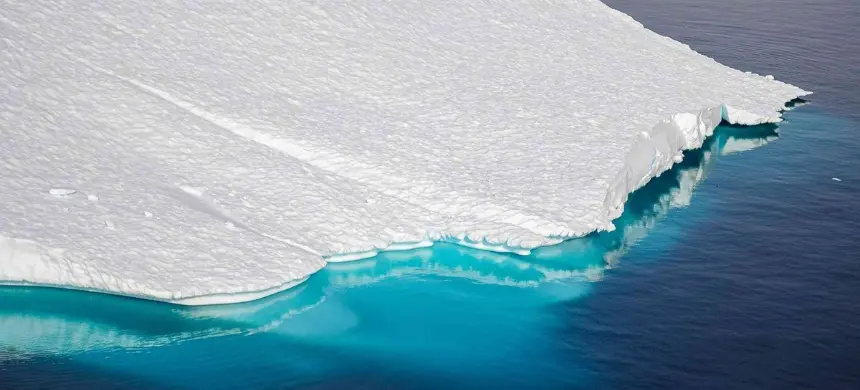Recent research suggests that the rise in sea levels could be mitigated in future centuries if land beneath Antarctica’s ice sheet begins to rise. This effect could offset some of the sea level increases caused by melting ice, though emissions-driven warming still poses a significant threat.
The study, which utilizes advanced models to simulate the mantle beneath Antarctica, reveals that as the ice sheet melts, the land beneath it slowly rebounds. This process is due to the mantle’s elasticity, which causes the land to rise as it adjusts to the reduced weight from the melting ice. This rebound can slow the flow of the ice sheet into the sea, thereby reducing sea level rise.
The research highlights that the melting ice sheet and the rebounding land reshape the seafloor, which restricts the thickness of the ice at its edges and decreases the amount of ice flowing into the ocean. This effect could significantly slow the rate of sea level rise, but the impact varies depending on the location and timing of the ice loss.
Read More: UN to deliver diagnosis, prescription for climate crisis
Natalya Gomez from McGill University employed a model that captures variations in the mantle’s viscosity beneath Antarctica to study this phenomenon. The model showed that the rebound of land, compared to older models that assumed a rigid ground, could reduce Antarctica’s contribution to global sea level rise by more than half a meter by the year 2500. This effect is more pronounced under high emissions scenarios, but even with moderate emissions, the reduction in sea level rise starts to become noticeable by 2100.
Conversely, under a very high emissions scenario, the researchers found that Antarctica’s rebounding land could contribute an additional 0.8 meters to sea level rise by 2500. This is because the ice sheet retreats faster than the land rebounds, leading to more water being displaced into the ocean.
Alexander Bradley from the British Antarctic Survey described this advancement in modeling as significant. He emphasized that while the rebound of land can slow sea level rise, the effects of emissions are still substantial. “The changes that take place in the 21st and 22nd century are influenced by our current actions,” Bradley noted.











